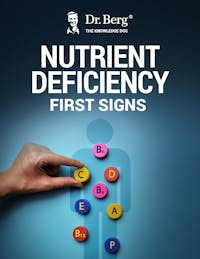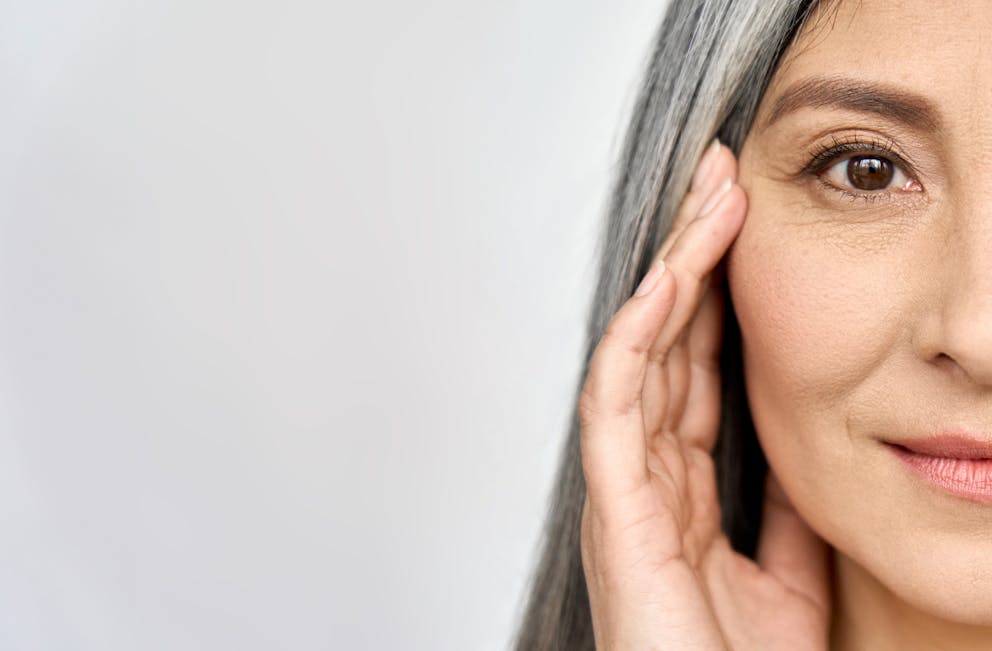Eye Twitching: Causes, Solutions, and Prevention

The First Signs of a Nutrient Deficiency
Learn how to recognize early symptoms related to specific nutrient deficiencies
Receive a downloadable list of early indicators your body is lacking key nutrients

The First Signs of a Nutrient Deficiency
Learn how to recognize early symptoms related to specific nutrient deficiencies
Receive a downloadable list of early indicators your body is lacking key nutrients

The First Signs of a Nutrient Deficiency
Learn how to recognize early symptoms related to specific nutrient deficiencies
Receive a downloadable list of early indicators your body is lacking key nutrients

The First Signs of a Nutrient Deficiency
Learn how to recognize early symptoms related to specific nutrient deficiencies
Receive a downloadable list of early indicators your body is lacking key nutrients

The First Signs of a Nutrient Deficiency
Learn how to recognize early symptoms related to specific nutrient deficiencies
Receive a downloadable list of early indicators your body is lacking key nutrients

The First Signs of a Nutrient Deficiency
Learn how to recognize early symptoms related to specific nutrient deficiencies
Receive a downloadable list of early indicators your body is lacking key nutrients

The First Signs of a Nutrient Deficiency
Learn how to recognize early symptoms related to specific nutrient deficiencies
Receive a downloadable list of early indicators your body is lacking key nutrients

The First Signs of a Nutrient Deficiency
Learn how to recognize early symptoms related to specific nutrient deficiencies
Receive a downloadable list of early indicators your body is lacking key nutrients

The First Signs of a Nutrient Deficiency
Learn how to recognize early symptoms related to specific nutrient deficiencies
Receive a downloadable list of early indicators your body is lacking key nutrients

The First Signs of a Nutrient Deficiency
Learn how to recognize early symptoms related to specific nutrient deficiencies
Receive a downloadable list of early indicators your body is lacking key nutrients
Eye twitching refers to the involuntary muscle spasms of your eyelid muscles in the absence of eye irritation or any type of eye injury. An eyelid spasm typically occurs for no clear reason and doesn’t cause pain, but it can be a nuisance.
Find out about the common causes of eye twitching and learn how to stop and prevent twitching naturally.

What causes eyelid twitching?
Eyelid twitches or eyelid spasms, also known as tetany, usually occur in your left upper eyelid but can also occur in your right eye. Occasionally, tetany occurs on the arm, nose, or even the lip.
According to the National Library of Medicine, harmless eye twitching that typically affects the lower eyelid is known as eyelid myokymia.
Eye twitching is often caused by a mineral deficiency affecting the facial nerve. Hypocalcemia, or low calcium, is one of the most common causes of eye twitching. Calcium deficiency can be caused by poor diet, high phosphorus, or low parathyroid hormone.
Along with eyelid twitching, other symptoms of hypocalcemia include:
Tingling of the fingertips or mouth
Heart arrhythmias
Psychosis/depression/anxiety
Low blood pressure
Alkalosis can also cause hypocalcemia. Normal blood pH should be between 7.35 and 7.45. When your blood pH rises higher than this, it’s known as alkalosis.
In a state of alkalosis, the calcium in your blood is no longer free and binds with the proteins in your blood called albumin. This essentially blocks calcium from being absorbed.
There are a few reasons why you might be dealing with alkalosis in the first place. Here are the most common causes of alkalosis:
Diuretics
Antacids
Vomiting/diarrhea
High cortisol
Decreased potassium in the blood
Taking more calcium will not solve an alkalosis problem. Calcium, especially the calcium carbonate found in most supplements, is alkalizing.
Low stomach acid can also reduce calcium absorption. Heartburn, GERD, and acid reflux are all signs of low stomach acid.
Lastly, hypomagnesemia or low magnesium may cause eye twitching. Symptoms of low magnesium include tremors, spasms, fatigue, arrhythmias, and palpitations.

How to stop eye twitching
Apple cider vinegar can help address alkalosis so that you can better absorb calcium. It can also help to make your stomach more acidic, increasing your ability to absorb calcium and other important minerals.
Add one tablespoon of apple cider vinegar to a glass of water to eliminate eye twitches. If you don't like the taste, you can also try tablets. Betaine hydrochloride supplements can also help acidify the gut.
Watch the video below to learn more about how to stop eye twitching.
The 3 Causes Of Eye Twitching (Tetany)
Eye twitching prevention
A healthy diet is one of the best ways to prevent an eye twitch. Eating plenty of vegetables can ensure adequate intake of potassium, magnesium, and calcium. Electrolyte powder can also support your intake of these important minerals.
Healthy Keto® and intermittent fasting can also reduce the risk of alkalosis, which can help prevent eye twitching.
Increasing vitamin D can help lower stress and can also increase your calcium absorption. The sun is the best source of vitamin D.
When to see a doctor
According to research published in the National Library of Medicine, eye twitching and eyelid myokymia is generally benign, “but it may be the initial presentation of other diseases which can affect other muscles on one or both sides of the face: hemifacial spasm, essential blepharospasm, meige syndrome, or spastic–paretic facial contracture.”
If you have chronic or severe eyelid twitching, twitching of the facial muscles, sensitivity to light, abnormal blinking, eye irritation, or pain, you should consult with a healthcare provider.
Rarely, eye twitching can be a sign of a neurological disorder known as benign essential blepharospasm. If you have this condition, your eye twitching will worsen over time and may be accompanied by facial twitches.
Blepharospasm can also cause your eyelid to completely close. Botulinum toxin injections (Botox) are sometimes used to treat this condition.

Key takeaways
Most cases of eye twitching are not a concern and will go away on their own. Apple cider vinegar, a healthy diet, and stress management can help stop and prevent eye twitching.
If you experience chronic, persistent eye twitching, consult with a healthcare professional to rule out a health concern.
FAQ
1. Why is my eye twitching?
There are a number of reasons why your eye might be twitching. Low calcium, low magnesium, and alkalosis are the most common causes of eye twitching.
2. When should I be worried about eye twitching?
Mild twitching is rarely serious, but chronic or severe cases of eyelid twitching are sometimes associated with nervous system disorders or movement disorders.
If your eye twitching becomes severe, won’t go away, or is accompanied by light sensitivity, involuntary blinking, blurry vision, or eye pain, you should consult a healthcare professional.
3. What deficiency causes eye twitching?
Deficiencies in magnesium, calcium, and potassium can cause eye twitching.
4. How do I stop my eye from twitching?
A healthy diet that provides the body with plenty of magnesium, potassium, and calcium can help stop an eye twitch. Minimizing stress is also important.
Apple cider vinegar and betaine hydrochloride supplements can help relieve eyelid twitching by acidifying the body, allowing for better absorption of important minerals.
5. Can calcium deficiency cause eye twitching?
Yes. Calcium deficiency is one of the most common causes of eye twitching.
6. How do I prevent eye twitching?
A healthy diet with plenty of vegetables is one of the best ways to ensure adequate intake of important minerals that can help prevent eye twitching. A healthy diet also keeps your stomach acidic so that you can properly absorb these minerals and avoid alkalosis.
Sources
U.S. Department of Health and Human Services. (2020, September 23). Blepharospasm. National Eye Institute.
https://www.nei.nih.gov/learn-about-eye-health/eye-conditions-and-diseases/blepharospasm
Jafer Chardoub AA, Patel BC. Eyelid Myokymia. [Updated 2023 Aug 8]. In: StatPearls [Internet]. Treasure Island (FL): StatPearls Publishing; 2023 Jan-. Available from: https://www.ncbi.nlm.nih.gov/books/NBK560595/
Previous blog
DONT DO THIS If You Are Trying to Lose WeightTags

Popular
08/21/2024
48.5K views
05/22/2024
42.2K views
11/18/2024
250.3K views
03/18/2024
11/21/2022




